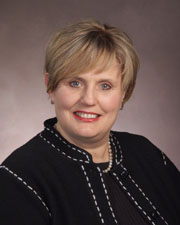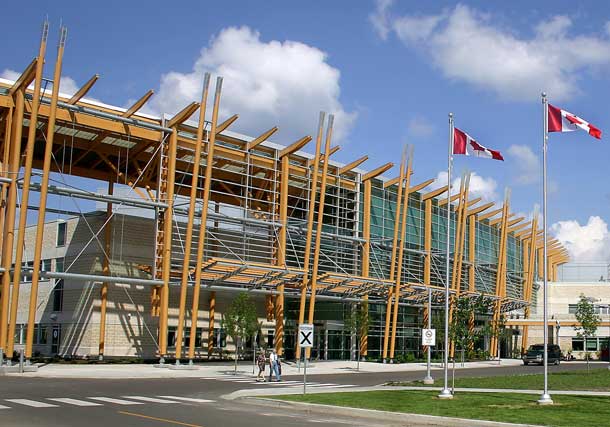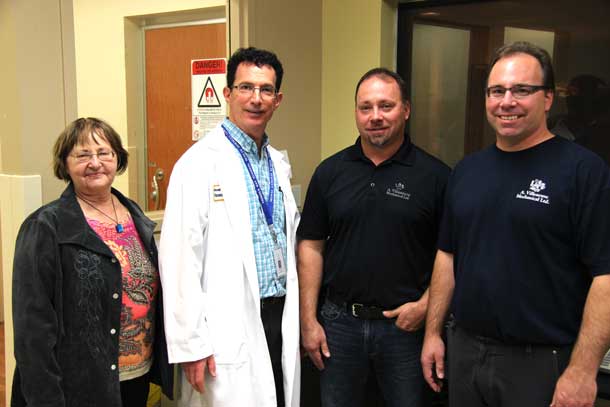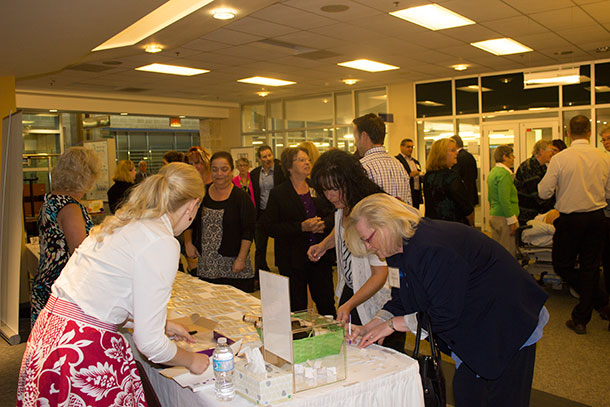
THUNDER BAY – HEALTH – Andrée Robichaud, President and CEO of Thunder Bay Regional Health Sciences Centre discusses what’s new at Thunder Bay Regional Health Sciences Centre (TBRHSC): the challenges and successes that impact the organization’s operations and patient care.
Q. What is TBRHSC celebrating this month?
In recent months we have had a lot of good news to share with our patients, families, volunteers, learners, and partners. In early August the interprofessional Bariatric Care Team performed the first on-site bariatric surgical case. Previously, patients from Northwestern Ontario in need of bariatric surgery travelled to southern Ontario or out of country. Access to bariatric surgery closer to home is excellent news for patients and families in Northwestern Ontario, where nearly one in four struggles with obesity, the second-highest obesity rate in Ontario.
When the Bariatric Care Centre first opened in 2010, it was the first new service to be built at Thunder Bay Regional Health Sciences Centre from the ground-up following the philosophy and practice of Patient and Family Centred Care, responsive to the needs, values, and input of patients and families.
In September, we celebrated the 5th Annual Sharing & Caring Together Exhibition, highlighting our many Patient and Family Centred Care initiatives.
Also in September, we joined in the province-wide celebration of the rich contributions francophones have made to the cultural, historical, social, economic, and political life of the province. With close to 8,000 francophones living in northwestern Ontario, improving our services to francophone patients and families is a priority and we are committed to addressing their unique healthcare needs.
The Ministry of Health and Long-Term care recently recognized our Emergency Department (ED) for “its commitment to reducing provincial wait times and improving emergency care for the people of Ontario”. I am very proud of the high-quality care that our ED physicians and staff provide every day to our patients and the work they do to improve patient outcomes, system efficiencies and, ultimately, to improve patient and family satisfaction.
In October we announced the launch of the Hospital Elder Life Program (HELP), designed to prevent delirium and functional decline in elderly patients during hospitalization. Using a team of well-trained volunteers, it supports patients to be more functional and independent when discharged from hospital.
After debuting on the list of Top Research Hospitals in Canada four years ago, our academic health sciences centre is still a member of the exclusive group. This is attributed to the ongoing success of our research arm, the Thunder Bay Regional Research Institute. Research gives our patients access to equipment we wouldn’t have had, like the PET/CT scanner used to diagnose lung cancer or the new cyclotron, which will eliminate our dependence upon outside sources of radioactive isotopes used for diagnostic imaging. Research also improves healthcare by attracting the best and brightest medical minds, including both scientists and clinicians.
- What are your challenges?
In light of the recent spread of the Ebola virus in West Africa and its potential, though remote, threat here, Public Health Ontario has directed certain guidelines be followed in assessing all patients arriving at Emergency Departments across the province.
As a result, TBRHSC put in place several safety precautions that will ensure any suspect cases will be treated appropriately and in a manner that will protect the health and safety of the patient, the hospital staff and the community. We are prepared and equipped to deal with any suspect Ebola cases, should any such patients arrive at our Emergency Department and the community can be confident we are well equipped to deal with this situation. Last month we dedicated significant time to training our staff in the procedures and protocols for handling a patient with suspect Ebola safely, and in the proper use of approved protective apparel. We are in constant touch with other designated hospitals and the Ministry of Health and Long-Term Care to ensure we have the best information to assure our priority of keeping our staff, patients and the community safe. While the likelihood of use ever actually seeing an Ebola case is extremely remote, we nonetheless have to be ready.
In addition, we continue to be challenged by overcapacity. We work very closely with our partners in healthcare with the common goal to provide the right care, in the right place, at the right time. However, our team of dedicated physicians, scientists, clinician-scientists, and staff continue to deliver the best care possible. They are advancing world-class Patient and Family Centred Care in an academic and research-based, acute care environment and contributing to national and world-wide advancements in medical research.
These advances are made possible through our partners in government, as well as businesses, groups and individuals through donations to the Thunder Bay Regional Health Sciences Foundation. Thanks to the generosity of donors, healthcare at Thunder Bay Regional Health Sciences Centre continues to improve every day. People are healthier and can receive more of the care they need closer






